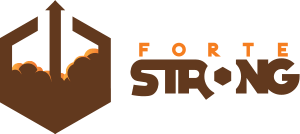
Now a boomerang is a bit like karma because what you put out into the world comes back to you, good or bad. Basically, you reap what you sow. If you raise your kids as helpless, entitled victims, when the rubber meets the road and they can’t cope, they will surely want to come back home to the comfort and safety they are accustomed to. So, if you want to make sure your “Boomerang Kid” doesn’t return (pun intended) unexpected, you’re going to need to change some things now.
Be Prepared
This simple Boy Scout phrase has been uttered zillions (yes, that’s a word) times and is older than your great great great great (need I go on?)grandmother. In short, it works. Life is hard on your own but not quite so difficult if you are prepared for it and the fact is that we all have to get comfortable with being, well uncomfortable.
With more young adults living at home with their parents than during the Great Depression, it might seem like there is a lack of opportunities in the workplace, but perhaps it is really just a lack of preparation. Young adults need a load of preparation, completely apart from what they might get in school. They need to be prepared emotionally, mentally and practically. They need people skills, money skills and street smarts to take on life as productive members of society. If you are hoping the school system is going to do this for you, your wrong.
We make so few demands on children these days
Author of The Anthropology of Childhood and professor emeritus at Utah State University, David Lancy, said in a 2016 interview, “At every level of the economy today, there are shortages of adequately trained workers. Part of the blame is that we make so few demands on children, remove all the obstacles from their lives, and keep telling them how wonderful they are.”
If we let our children loose in the world without being able to manage their finances and time, feed themselves, do their own laundry and get themselves together to meet important commitments, on their own, how can we expect them to survive, much less thrive? Add to this the totally unrealistic expectations that some parents have foisted upon their kids and you have a recipe for disaster. The message for every generation since the second world war has been the same — go to school, get good grades, go to college, earn a degree, get a job and your future is secured. Unfortunately, it does not work that way in real life as good grades and a college education do not guarantee anything of the sort, confirmed by the growing number of graduates who have enormous debts but are either unemployed or underemployed.
Is CTE the answer?
So what’s the solution? Many people are in favor of CTE (Career Technical Education) in high school, which is sorely lacking in the US compared to many countries in Europe. Will getting hands-on, work-based and real-world experience while still in school prevent your child from landing up back home in your basement? It seems like the perfect answer, especially as there are jobs for the taking in technically oriented positions, but there’s a catch.
A new international report published in the winter 2017 issue of the Journal of Human Resources shows that while vocational education might get you into the job market easier and sooner than a general education, over time this lead diminishes and then reverses. “Individuals with vocational education tend to have a higher employment rate than individuals with general education for the youngest cohorts. For older cohorts, though, individuals with general education are more likely to be employed than those with vocational education, and this is most pronounced at the end of the work lifecycle.”
The researchers point out that, “[V]ocational training should not substitute for providing strong basic skills because this and other analyses underscore the necessity in modern economies of developing general cognitive skills.” These general cognitive skills, along with critical thinking skills and the ability to adapt to change are the traits that will ensure success in any field. The world of work is changing at such a fast pace that none of us can afford to see education as a one-time fix or a magic pill.
“Opportunity is missed by most people because it is dressed in overalls and looks like work.” ~Thomas A. Edison
Be cruel to be kind
What we need are innovative, creative, and flexible thinkers who are willing to be life-long learners and do the work necessary to keep moving forward. Entitlement kills all of this because it makes you focus on what you think you deserve and of course, this then makes you blind to all the opportunities that are there. If you want to avoid having a boomerang kid, you have to lay the groundwork sooner rather than later. You have to do less for your kids while expecting more from them. Make ’em suffer a little bit. Allow them to take some healthy risks and fail when it is still relatively safe to avoid having to deal with catastrophic failure later. Hand over responsibility early and often, make your kids accountable, and make sure they get used to starting at the bottom and working their way up, without Mum or Dad pulling strings. In short, make their lives uncomfortable enough that the big bad world is not quite so scary and the prospect of bouncing back home not quite so attractive.
About The Author
Brook Price dedicated himself to helping others early in his life. He grew up in Sunny Orange County California, then joined the Marine Corps at the age of 21 serving five and half years as a helicopter crew chief and then as chief accountant. His journey with this type of work began when he volunteered as a Young Marines Instructor during his time in the Marines, helping kids get off the street, improve their lives, and develop as a leaders. After his tour, Brook left the Marines to pursue a career in experiential therapy by attending Southern Utah University where he majored in outdoor recreation with a minor in psychology.
Brook has seventeen years of experience working for a variety of different therapeutic and transitional programs across the nation. His thirst for knowledge drove him to learn and study successful therapeutic models and programs across the country, most notably Outward Bound. Brook has experience working with therapeutic, residential, military, wilderness, and transitional programs for adults and adolescents.
